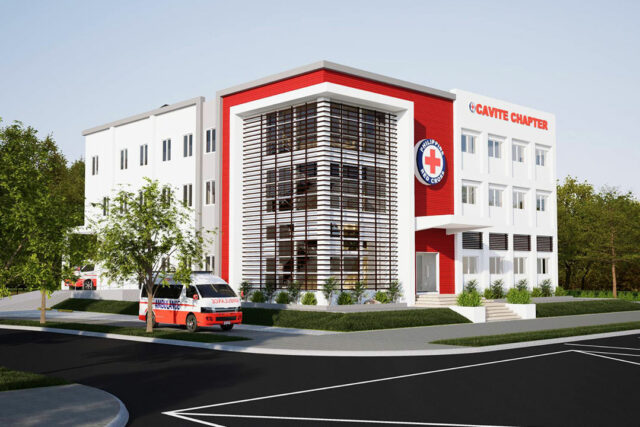CREATE MORE, for being more, should turn out better than CREATE. But in a BusinessWorld column published in November 2023, we expressed fear that “CREATE MORE will mean creating more troubles.”
CREATE MORE stands for “CREATE to Maximize Opportunities for Reinvigorating the Economy.” It is essentially about overhauling the governance of fiscal incentives and providing more incentives or enhanced incentives.
CREATE MORE amends the CREATE (Corporate Recovery and Tax Incentives for Enterprises) Act which was passed in 2021. In truth, as we shall discuss, CREATE MORE is not building on CREATE but is undermining it.
CREATE is a landmark piece of legislation; its defining feature, apart from the reduction of corporate income tax, is the rationalization of fiscal incentives. CREATE has made fiscal incentives transparent, performance-based, and time-bound. Moreover, it has established sound economic governance in two ways. First, it subjects the application for fiscal incentives to rigorous economic analysis. Second, it narrows the scope of incentives to firms that qualify for inclusion in the Strategic Investment Priority Plan (SIPP).
This was a reform long overdue. Several administrations had difficulty passing such a transformative reform because of the stiff resistance from mighty vested interests. Now that it has passed, CREATE is expected to deliver strategic gains for investments, jobs, and growth. But still in an early stage of implementation, CREATE is already being threatened.
CREATE MORE would have been welcome if it only sought to amend what Senator Win Gatchalian termed “murky provisions” and clarify conflicting interpretations of its Implementing Rules and Regulations (IRR). To illustrate, an acceptable amendment would have been to do away with the complications of the VAT refund system resulting in long delays. But the amendments found in CREATE MORE strike at the very heart of sound fiscal and economic governance.
The column on CREATE creating more troubles was published on Nov. 13, 2023, at the time that the House of Representatives was deliberating on the bill titled CREATE MORE. The House subsequently passed a harmful bill in March 2024. The Senate is now deliberating on Senate Bill 2762, which has its share of questionable features.
Here, we reiterate and sharpen our arguments why we strongly oppose the most pernicious amendments to CREATE.
We put fiscal incentives in their proper place in the broader setting of economic strategy and policy. The evidence —global and national, theoretical and empirical, shows that fiscal incentives are not the main determinant of job-creating investments. Due to space constraints, we cite three of the most relevant sources.
First is a paper written as far back as 2001 by tax experts from the International Monetary Fund. We quote Vito Tanzi and Howell Zee, from their paper “Tax Policy for Developing Countries.”
“While granting tax incentives to promote investment is common in countries around the world, evidence suggests that their effectiveness in attracting incremental investments — above and beyond the level that would have been reached had no incentives been granted — is often questionable. As tax incentives can be abused by existing enterprises disguised as new ones through nominal reorganization, their revenue costs can be high. Moreover, foreign investors, the primary target of most tax incentives, base their decision to enter a country on a whole host of factors (such as natural resources, political stability, transparent regulatory systems, infrastructure, a skilled workforce), of which tax incentives are frequently far from being the most important one.”
The second paper is a recent publication from the Asian Development Bank, authored by Janet Stotsky titled “Tax Incentives and Investment” (2024). Stotsky laid out the “key policy implications” on the basis of evidence on the effectiveness of fiscal incentives:
“These key implications are that tax incentives should be used sparingly and should focus on encouraging activities that have clear social benefits, including research and development.”
The third document is a chapter from the book Taxation, International Cooperation and the 2030 Sustainable Development Agenda, edited by Irma Johanna Mosquera Valderrama, Dries Lesage, and Wouter Lips. Chapter 7 is titled “Tax Incentives in Developing Countries: A Case Study— Singapore and the Philippines.” The co-authors, Irma Mosquera Valderrama and Mirka Balharová, show that Singapore’s fiscal incentives “complemented its already attractive investment environment instead.” That’s what matters — having a favorable overall investment climate — for example: policy predictability, sound macroeconomic management, rule of law, infrastructure, and a skilled and educated labor force.
CREATE is responsive to the framework and approach cited in the literature above. But CREATE MORE undermines the fundamental principles governing fiscal incentives.
CREATE MORE dilutes the powers of the Fiscal Incentives Review Board (FIRB), the central governing body for fiscal incentives. In turn, CREATE MORE expands the powers of the investment promotion agencies (IPAs) and even expands their number.
In CREATE, the FIRB coordinated with the Board of Investments to formulate the Strategic Investment Priority Plan (SIPP), held the power to cancel, suspend, and withdraw fiscal incentives, and audited the compliance of IPAs. In CREATE MORE, the FIRB can no longer formulate and approve place-specific SIPPs but can only formulate additional time-bound or place-specific projects for inclusion in the SIPP; can only monitor the cancellation, suspension, or withdrawal of fiscal incentives (the power to do so has been transferred to the IPAs); and has been stripped of its audit functions.
Further, CREATE MORE expands the discretionary power of the President to give fiscal and nonfiscal incentives to enterprises, even without an FIRB recommendation. It delegates the process of accepting, processing and granting business permits to firms to IPAs, which may present a conflict of interest, given that IPAs are primarily for-profit bodies. CREATE MORE thus fragments the governance of fiscal incentives and gives IPAs undue authority and jurisdiction over investments in the country.
Further, CREATE MORE expands the Strategic Investment Priority Plan (SIPP) established in CREATE by allowing individuals IPAs to create a local SIPP. The SIPP in CREATE (which will now be called the national SIPP), formulated by the Board of Investments, identifies the industries critical to the country’s economic development and is published every three years.
Senator Pia Cayetano, former chair of the Ways and Means Committee and sponsor of CREATE in the Senate, noted in her interpellation on Aug. 5 that the intention of the SIPP was to streamline processes for locators and that the creation of a local SIPP could possibly complicate the incentive availment process for locators.
CREATE MORE’s Senate sponsor, Senator Sherwin Gatchalian, said that the local SIPP was created to consider IPAs with unique geographical locations and unique offerings, noting those in the Eastern Seaboard like the Aurora Pacific Economic Zone and Freeport (APECO), which offer agriculture, cold storage, and fisheries businesses.
But priorities, by definition, should be narrow, targeted, and disciplined. The creation of a local SIPP through CREATE MORE makes the SIPP sweeping, rambling, inconsistent, and incoherent.
CREATE MORE unnecessarily expands fiscal incentives. It expands the allowable deductions under the enhanced deductions regime (EDR) and lengthens the sunset period for the EDR or Special Corporate Income Tax (SCIT) regimes, extending up to 27 years, fueling concerns raised by our economic managers during the deliberations on the House version of CREATE MORE that it be a revenue-eroding measure.
All of the above paves the way for abuse, corruption, and favoritism.
The push for CREATE MORE also comes at a time that the Philippine fiscal situation is fragile. Finance Secretary Ralph Recto argued in a Senate Health Committee hearing on July 30 that the Department of Finance (DoF) has a “herculean task of funding our gargantuan budget” worth P5.77 trillion. In the process of scouting for resources, the DoF has even targeted P89.9 billion worth of premium contributions of indirect contributors from the Philippine Health Insurance Corp. or PhilHealth and ordered that these funds be returned to the National Treasury, for both health and non-health projects.
This begs the question: if fiscal space is so tight, why are our legislators eroding revenues further by handing out more incentives? Loosening the discipline in governing fiscal incentives and allowing expanded incentives through CREATE MORE will only worsen the binding fiscal constraint.
The huge forgone revenues will impair the expenditure plan for human development, transition to green energy, infrastructure, etc.
Finally, CREATE MORE is not responsive to the new challenges that new industrial policy wants to address. Like it or not, the jobs being generated in the Philippines are in the small- and medium-scale enterprises (SMEs). The jobs are mainly in the service sector, particularly in the informal service sector. This sector should be the focus of policy. The goal is to create good jobs, productive jobs, quality jobs in the service sector and in SMEs.
CREATE MORE, however, caters to the already entrenched and entitled big businesses.
We urge our Senators to protect the essential reforms within CREATE and reject the CREATE MORE amendments which can enable arbitrariness, redundancy, and abuse within our fiscal incentive regime. Further, PREVENTING the erosion of government revenues is the best option to put us on track to hit our fiscal targets without taking funds from crucial social programs.
Pia Rodrigo is strategic communications officer while Filomeno S. Sta. Ana III coordinates the Action for Economic Reforms.
www.aer.ph



















